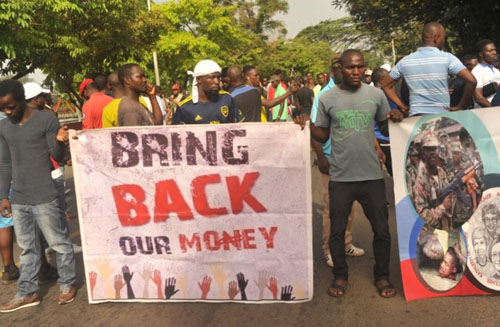FPI / February 20, 2020
U.S. President Donald Trump has proposed slashing the foreign aid budget by 21 percent in his 2021 budget proposal. British Prime Minister Boris Johnson has ordered a review into how the UK’s £14.6 billion ($18.7 billion) foreign aid budget is spent.

A new report from the World Bank provides justification for such concern into foreign aid and where the funds end up, analysts say.
The report said that about a sixth of all foreign aid intended for the world’s poorest nations has flowed into bank accounts in tax havens owned by corrupt elites.
The 46-page report noted: “Our results document cleanly and robustly that aid disbursements are associated with wealth accumulation in offshore accounts.”
On average 7.5 percent of the aid given over the 10-year period between 1999 and 2010 ended up in tax havens, such as Switzerland and Luxembourg, the World Bank’s report said. The ratio increases to as much as 15 percent for the most aid dependent countries.
Switzerland received the largest funds over the review period. The country has recently been forced to repatriate funds siphoned by the late dictators of Nigeria and the Democratic Republic of Congo.
Luxembourg, Cayman Islands, Bahamas, Hong Kong and Singapore were also singled out in the report.
“Tax havens and wealth managers could also face tougher scrutiny for their role in banking the aid money,” Ollie Williams wrote in a Feb. 20 analysis for Forbes.
Williams noted that European courts have recently “been alive with stories” of what the corrupt elites are doing with large slices of funds intended for the poorest nations.
Last year, Swiss authorities seized and sold a collection of sports cars belonging to the son of Equatorial Guinea’s dictator Teodorin Obiang.
On Feb. 10, an appeals court in France fined Obiang €30 million ($33 million) for using public money to fund his lavish lifestyle, including properties in Paris valued at over €25 million ($26.9 million).
On Feb. 11, Portugal ordered bank accounts belonging to Angolan billionaire Isabel dos Santos to be frozen following requests from a criminal investigation in Angola, where she is being investigated over misappropriation of funds from the state oil company, Sonangol.
“Nobody likes to hear their money is lining the pockets of corrupt elites,” Williams wrote. “Sadly, as ever, it will be the poor who will lose out.”
Intelligence Brief __________ Replace The Media
